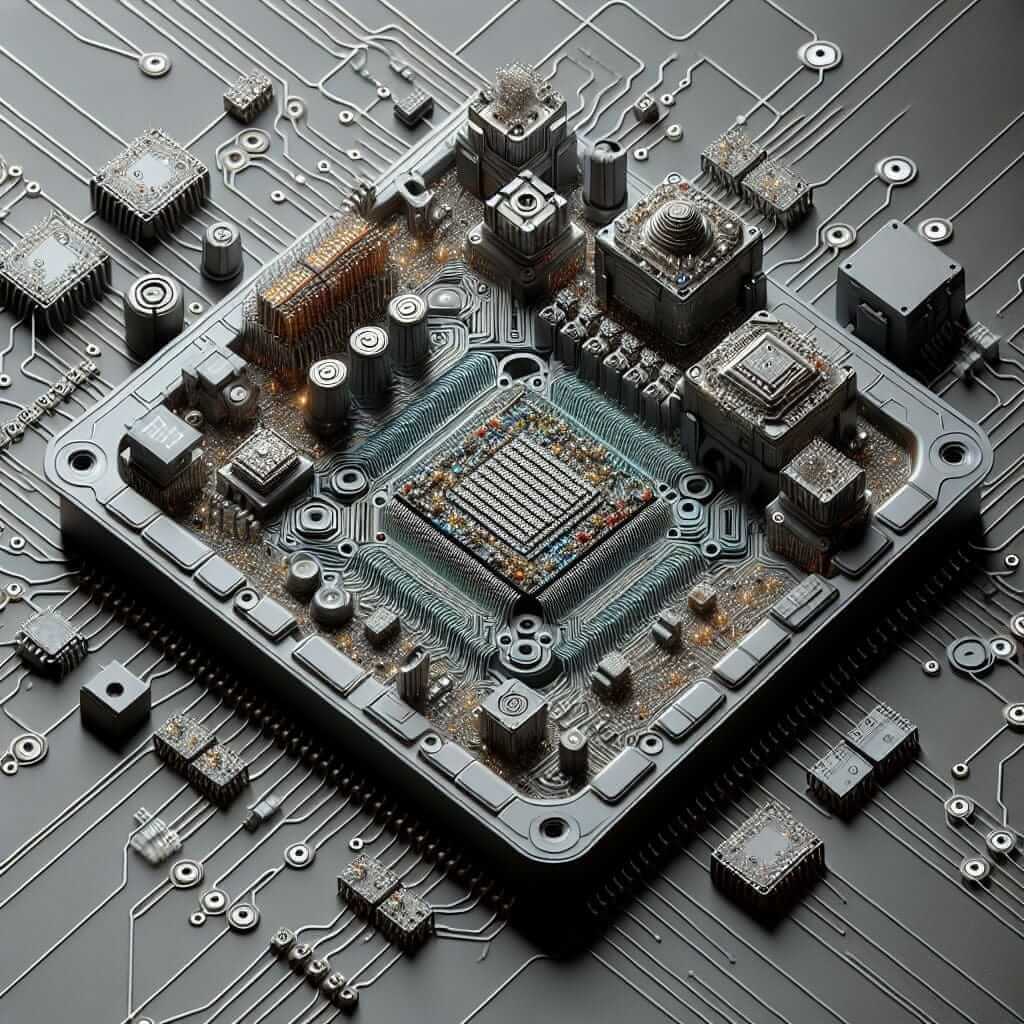The word “microchip” (/ˈmaɪ.kroʊ.tʃɪp/), often shortened to “chip“, is a noun that holds significant weight in the world of technology and frequently appears in IELTS readings and listening sections. Understanding its meaning and usage can be your secret weapon to achieving a higher band score.
Here are some synonyms for “microchip”:
- Integrated circuit (IC): This term emphasizes the complex circuitry within the chip.
- Semiconductor: This refers to the material used to make microchips.
- Microprocessor: A type of microchip that acts as the brain of a computer.
Let’s explore how this unassuming word can be your key to conquering the IELTS exam.
Delving Deeper: Meaning and Usage of “Microchip”
A microchip is a tiny piece of silicon that contains millions or even billions of transistors. These transistors work together to perform specific tasks, such as processing data, storing information, or controlling electronic devices.
Think of a microchip as the brain of a computer, smartphone, or even a modern car. It’s the invisible force driving the digital world around us.

“Microchip” in IELTS: Decoding its Significance
The prevalence of “microchip” in the IELTS exam stems from its connection to several key themes often explored in the reading and listening sections:
- Technology and Innovation: Discussions about technological advancements, such as artificial intelligence, robotics, and the Internet of Things (IoT), often revolve around the capabilities of microchips.
- Manufacturing and Industry: The production process of microchips is highly complex and automated, making it a relevant topic for passages related to manufacturing and industrial automation.
- Social Impact of Technology: The ethical implications of microchip technology, such as privacy concerns and the potential for job displacement, are also frequently addressed.
Mastering IELTS with “Microchip”: Sample Applications
Listening Section
Scenario: A lecture discussing the evolution of computing power.
Possible Question: What factor led to the significant increase in computing power over the past few decades?
Answer: The miniaturization of microchips, allowing for more transistors to be packed onto a single chip, has been the driving force behind the exponential growth in computing power.
Reading Section
Passage Excerpt: “The development of the microchip in the late 20th century revolutionized the electronics industry. These tiny silicon wafers, containing millions of transistors, enabled the creation of smaller, faster, and more powerful electronic devices.”
Possible Question: What impact did the invention of the microchip have on the electronics industry?
Answer: The microchip revolutionized the electronics industry by facilitating the development of smaller, faster, and more powerful devices.
Writing Section (Task 2)
Topic: Discuss the advantages and disadvantages of increasing automation in the workplace.
Sample Argument: “While automation, powered by sophisticated microchips, can enhance efficiency and productivity, it also raises concerns about job displacement and the widening skills gap.”
Expanding Your Vocabulary: Collocations and Idioms
Here are some collocations and idioms related to “microchip”:
- Microchip implant: A tiny microchip inserted under the skin, often used for identification or tracking purposes. (e.g., “Microchip implants are becoming increasingly common in pets.”)
- Computer chip: Another term for “microchip,” often used in a broader context. (e.g., “The latest smartphones are equipped with powerful computer chips.“)
- Silicon Valley: A region in California known for its high concentration of technology companies, many of which specialize in microchip design and manufacturing. (e.g., “Silicon Valley is at the forefront of microchip innovation.”)
Conclusion
Mastering the vocabulary related to “microchip” is not just about memorizing definitions. It’s about understanding the broader context of technological advancements and their impact on our world. By incorporating this vocabulary into your IELTS preparation, you’ll be well-equipped to tackle any question that comes your way. Remember to practice using these words in your speaking and writing to solidify your understanding and boost your confidence on exam day.